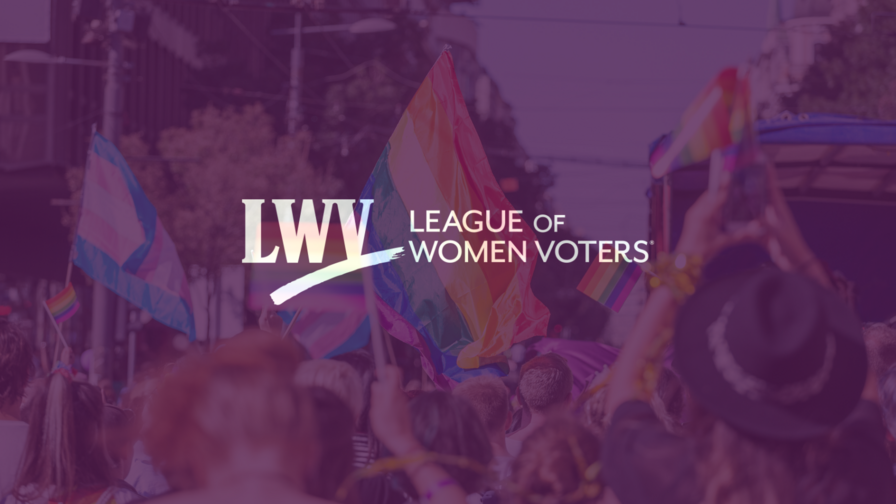LGBTQIA+ Discrimination and the Impact of 303 Creative LLC v. Elenis
On the final day of Pride month, June 30, 2023, the Supreme Court of the United States (SCOTUS) ruled in favor of a business owner seeking to discriminate against LGBTQIA+ persons, striking a blow against Americans’ right to live free from discrimination. As a lesbian woman who has young children, this potential new license to discriminate created by 303 Creative deeply concerns me.
Even before this ruling, I was acutely aware of how discrimination affects my family. For instance, I cautiously waited to place a Pride flag in our front yard until I knew our neighborhood was inclusive. Similarly, after realizing the hospital three miles from our home was religiously affiliated, I grew concerned that this affiliation may impact the quality of care we received and researched the nearest non-religiously affiliated hospital to ensure my family’s appropriate care. Currently, more than one in eight LGBTQIA+ people live in a state with hospitals where a doctor can refuse to treat them. Fortunately for my suburban, middle-class family, there is a safe, welcoming hospital within driving distance, and we own a vehicle to transport ourselves the extra miles.
Then, I realized my daughter’s theater program was run by a faith-based organization that prohibited the expression of gender identity not aligned with sex assigned at birth. We contemplated removing her from the program. Would they not allow my partner and me to observe her performances if we wore suits instead of dresses? What if their anti-LGBTQIA+ inclinations extended as far as disallowing us from even attending her performances if we are openly lesbian? It was the only theater program in our local area, and my daughter was enthusiastic about participating — so we took our chances.
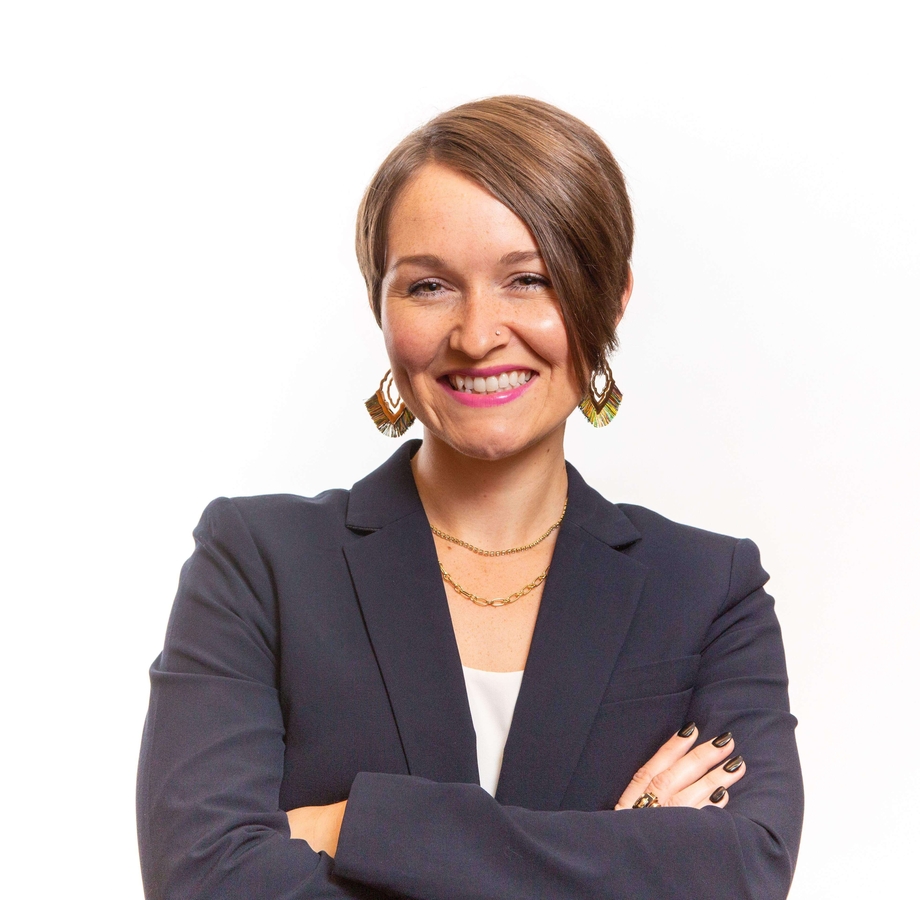
The Author, Sam Cerchio
Now, I wonder if there will be a day when my daughter is outright refused participation in her theater program because of her family. Or, as Justice Sonia Sotomayor worried in her dissenting opinion in 303 Creative v. Elenis, will there be a day when I am browsing a marketplace with my children, and we see a business that refuses service to gay and lesbian people? Instead of the cruel classmate at school who privately told my daughter, “I hate you,” after learning her mom is gay, my children may now receive these hateful messages broadcasted in the public sphere. The ones who should have upheld principles of equality and fairness — our nation’s highest Court — failed.
What is 303 Creative LLC v. Elenis About?
The facts of 303 Creative LLC v. Elenis are strange.
Put simply, Lorie Smith, owner of 303 Creative, LLC, wanted to post a notice on her company’s website declaring that wedding websites would be refused to gay and lesbian couples. Smith alleged that by prohibiting this form of expression, Colorado’s anti-discrimination law violated her First Amendment rights under the Free Exercise and Free Speech clauses, which protect the right to the free practice of religion and freedom of expression, respectively.
This was an unexpected request for several reasons, including that at that time, Smith did not actually create wedding websites, nor had she had any requests to do so from same-sex couples. Her case hinged on hypothetical future plans to expand her business to include wedding websites and a desire to ensure she could discriminate against same-sex customers without incurring penalties under Colorado law if and when she did so.
More specifically, Smith sought to overturn two clauses of Colorado’s Anti-Discrimination Act (CADA): the Accommodations Clause and the Communications Clause.
Colorado’s Anti-Discrimination Act (CADA)
CADA is an anti-discrimination law that prohibits discrimination in public accommodations and in the communications made by businesses that offer the accommodations.
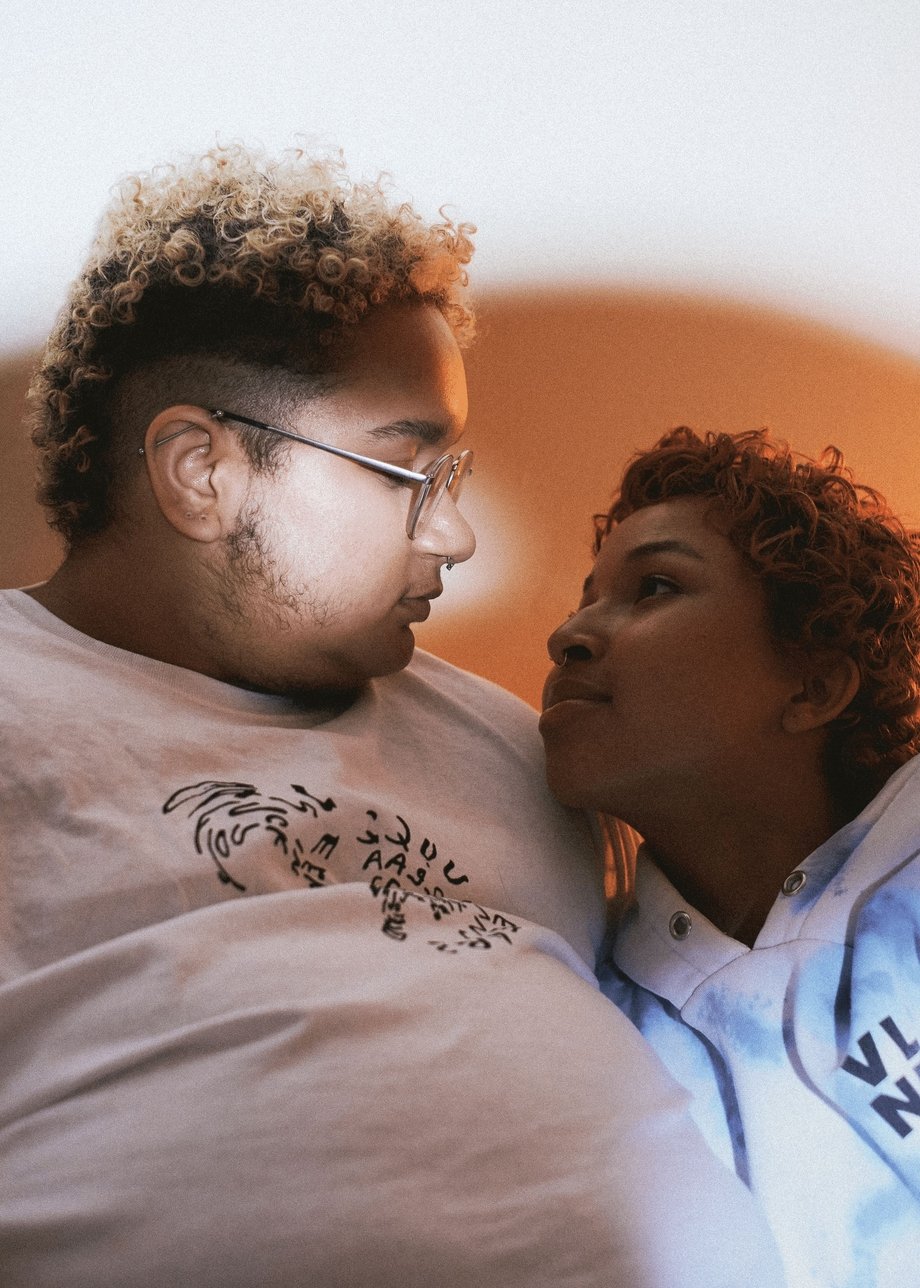
Under the Accommodations Clause, CADA forbids “any place of business engaged in any sales to the public and any place offering services, facilities, privileges, advantages, or accommodations to the public” from refusing service to people based on their sexual orientation.
Under the Communications Clause, CADA prohibits public businesses from indicating that:
”the full and equal enjoyment of the goods, services, facilities, privileges, advantages, or accommodations of a place of public accommodation will be refused...or that an individual’s patronage...is unwelcome, objectionable, unacceptable, or undesirable because of...sexual orientation.”
Colorado is one of many states with a public accommodations law intended to shield protected classes of people from discrimination in the public marketplace. Violations under CADA can result in fines of up to $500, a cease-and-desist order, or various other remedial requirements such as educational programming or compliance reports. These anti-discrimination laws, or “public accommodations laws,” are common around the country but vary with respect to what groups are protected. States define “protected class” based on disability, race, gender, ancestry, religion, and sexual orientation, among others. Twenty-five states include discrimination based on sexual orientation in their anti-discrimination laws.
303 Creative v. Elenis’s Journey Through the Courts
Smith filed a lawsuit in the United States District Court for the District of Colorado challenging the application of CADA to her business. The district court upheld CADA’s constitutionality, as did the US Court of Appeals for the Tenth Circuit. Smith then sought review from the US Supreme Court.
Stay Updated
Stay updated on Supreme Court cases and more by signing up for our email list!
The US Supreme Court accepted the case, heard oral argument on December 5, 2022, and issued its opinion on June 30, 2023. In a 6-3 decision, the Court reversed the district’s decision, ruling that CADA’s application to Smith’s circumstances is unconstitutional under the First Amendment. In doing so, the Supreme Court effectively declared that certain vendors may post a notice of their intention to discriminate against a protected class of people. Our nation’s highest court functionally endorsed a business's license to discriminate.
SCOTUS’s Reasoning in the 303 Creative LLC v. Elenis Decision
Justice Gorsuch grounded the new license to discriminate on the right to free speech, focusing on Smith’s desire to create wedding websites. Gorsuch referred to the websites as “expressive designs speaking messages” and wrote that the First Amendment bars a government from forcing someone to speak a message they disagree with. The opinion glosses over the fact that Smith’s hypothetical message was a discriminatory notice. Instead, it focuses on Smith’s desire to turn down projects from engaged LGBTQIA+ couples.
Gorsuch emphasized that forcing Smith to create a wedding website for a gay or lesbian couple implicitly forces her to support gay marriage. The Court attempted to soothe potential outrage with the assurance that Smith would be willing to provide other graphic design services for gay and lesbian couples, just not wedding websites.
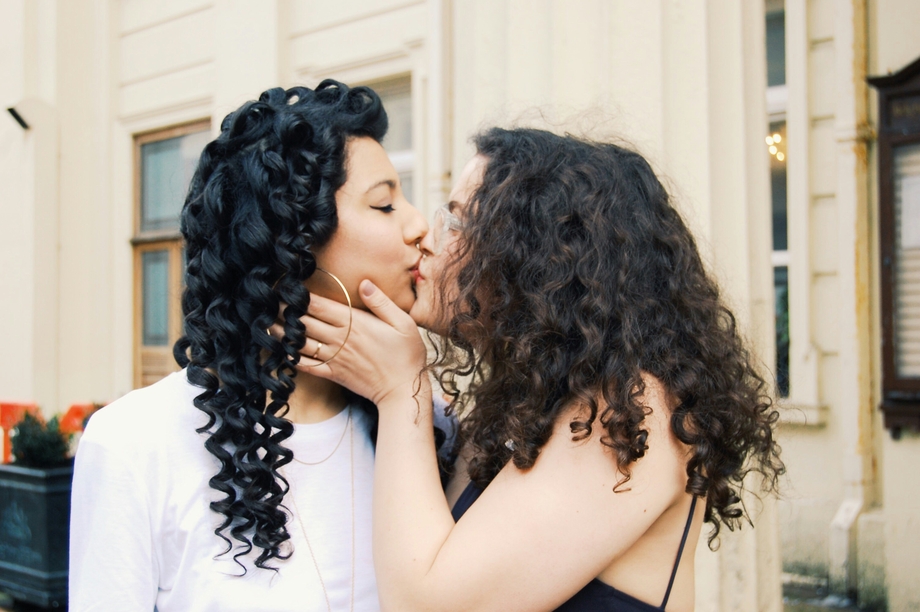
To support its decision, the Court applied two First Amendment cases related to gay rights as precedent: Boy Scouts of America v. Dale and Hurley v. Irish-American Gay, Lesbian, and Bisexual Group of Boston, Inc. In the first case, SCOTUS ruled that the Boy Scouts of America had the right to revoke the membership of a gay member; in the latter, SCOTUS determined that private organizations had the right to exclude gay rights groups from public demonstrations.
Yet neither of the cited cases involved a business selling goods or services to the public or a party that sold goods or services for profit. Further, neither case granted a public company the constitutional right to exclude protected customers from certain services.
SCOTUS Precedent Striking Down Discrimination
Incredulously, the Court has officially interpreted the United States Constitution as supporting these harmful and dangerous behaviors even though plentiful precedent strikes down discrimination in public accommodations.
As Justice Sonia Sotomayor explained in her dissent, our nation has a history of failed plaintiffs who attempted to use the Constitution to justify “separate but unequal” service to protected classes of people, including Black people, women, and LGBTQIA+ people. 303 Creative LLC v. Elenis marks a return to Court-sponsored discrimination not seen for decades.
In Katzenbach v. McClung, the Court ruled against a company seeking to discriminate against Black people in restaurants. In Heart of Atlanta Motel v. United States, the Court denied a motel owner the right to exclude Black customers. Even in Newman v. Piggie Park Enterprises, Inc., when a drive-in restaurant discriminated against customers based on a religious belief opposing racial integration, the Court found the plaintiff’s argument “patently frivolous.” In each of these cases, a business attempted to exclude a protected class of people from a certain type of service, just as Smith sought to exclude gay and lesbian couples from wedding website services. And in each of these precedential cases, the Court rejected the discrimination.
Even in Masterpiece Cakeshop Ltd., v. Colorado Civil Rights Commission, a recent case that dealt with the nearly identical issue of a shop owner refusing to create wedding cakes for gay weddings, the Court refused to declare a license to discriminate against LGBTQIA+ couples and instead settled the case on an unrelated issue.
As Justice Sonia Sotomayor reminds us in her dissent, “the Constitution places no value on discrimination.”
Shamefully, the majority in 303 Creative LLC v. Elenis ignores its prior precedent. The majority opinion mentions a few of the case names but gives them zero precedential value or consideration other than an obligatory nod to recognize the harmful effects of discrimination. In fact, not only does the majority largely ignore discrimination as the real issue of the case, but it also attacks the public accommodation law at issue. The majority asserts that the “very purpose” of CADA is to coerce people into “eliminat[ing]...dissenting ideas.”
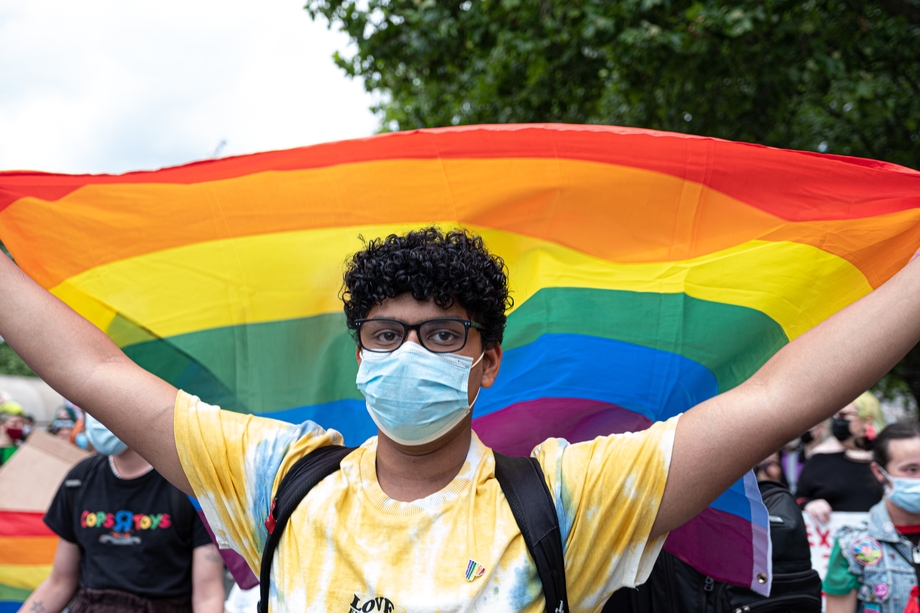
The League of Women Voters disagrees. We submitted an amicus brief alongside the National Women’s Law Center in support of CADA because we firmly believe that these laws are crucial to protect women, LGBTQIA+ people, and all historically disenfranchised people. Anti-discrimination laws do not decrease diversity; they preserve and protect it. Further, court decisions that allow business owners to discriminate against customers based on their identity are anti-democratic. They not only harm the LGBTQIA+ community but all historically disenfranchised communities, who have a right to live free from discrimination.
303 Creative LLC v. Elenis’s Effects on LGBTQIA+ People
The 303 Creative ruling emboldened a growing movement that attempts to devalue and punish our LGBTQIA+ population and paves the way for new discriminatory efforts. Since the ruling, there have been anti-LGBTQIA+ efforts both legislatively and judicially, as well as discriminatory behaviors observed in the open marketplace.
In the 2023 legislative session alone, legislators introduced almost 500 anti-LGBTQIA+ bills. Fourteen of these bills have either advanced or become law since the 303 Creative decision. On the judicial front, courts that have decided in favor of LGBTQIA+ rights are now remanding cases for reconsideration.
For example, in Oregon, a case regarding a $30,000 fine for a bakery that violated the state’s anti-discrimination statute by refusing to serve a lesbian couple is now remanded in light of 303 Creative. In Texas, a judge who is suing her State Commission after they publicly warned her against refusing to perform same-sex marriages submitted a new brief asking the court to consider 303 Creative’s instruction on forcing someone to create expressive content that contravenes their religious convictions and violates their First Amendment rights.
Discriminatory behavior and anti-LGBTQIA+ rhetoric and violence continue to be reported; only now, such behavior may be beyond the reach of state anti-discrimination laws if certain businesses do it.
Additionally, while 303 Creative did not legalize or condone violent behavior, it sends a dangerous message in a climate that’s already rife with real dangers to LGBTQIA+ customers and the businesses that support them. Months after the ruling was issued, a California woman was shot and killed after refusing to remove a Pride flag hanging outside of her business. Prior to the murder, the alleged killer frequently posted anti-LGBTQIA+ posts online. This California tragedy is precisely why allowing hateful or discriminatory behavior of any sort is dangerous, posing a very real threat to an already vulnerable community.
A Broader License to Discriminate
The potential license to discriminate granted by 303 Creative may be used to harm those beyond the LGBTQIA+ community. On a directly applicable level, the decision could affect marriage services for broad swaths of society. For example, perhaps a religious person refuses to serve a previously divorced, interfaith, or interracial couple based on the business owner’s religious beliefs. “How quickly we forget that opposition to interracial marriage was often because ‘Almighty God. . . did not intend for the races to mix,’” wrote Justice Sonia Sotomayor, quoting Loving v. Virginia. The license to discriminate against LGBTQIA+ persons based on freedom of expression could quickly turn into a license to revive discrimination against other protected characteristics, including race, sex, disability, religion, and more.
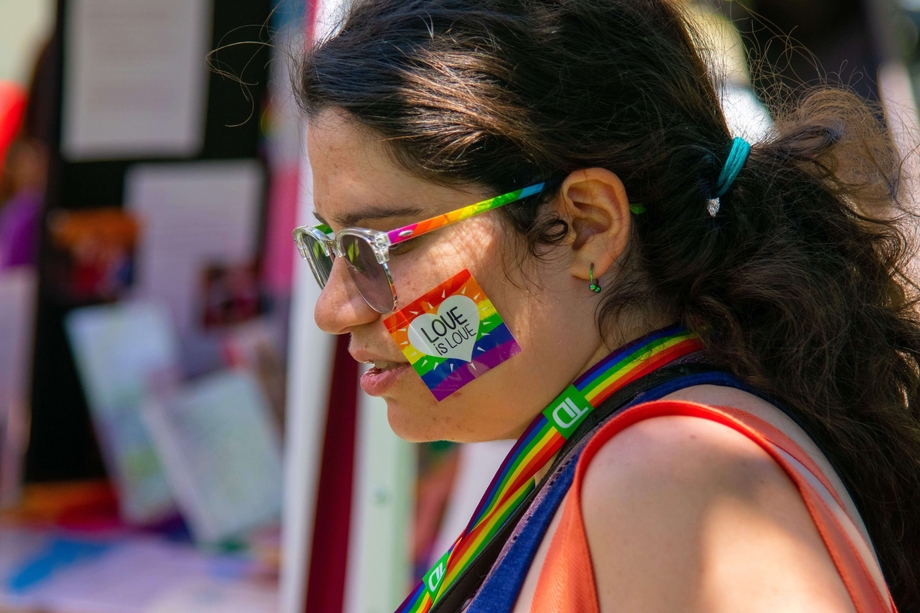
The Court’s reasoning in 303 Creative LLC v. Elenis could also extend to any services that involve “expressive” speech. The Court has left the task for lower courts to determine what will qualify as expressive speech and what discriminatory behavior from business owners will, therefore, be exempt from anti-discrimination laws. As Justice Sotomayor also points out in the dissent, “the decision threatens to balkanize the market and to allow the exclusion of other groups from many services.” She cites the examples of “birth announcements, family portraits, [and] epitaphs,” explaining that “[t]hese are not just words and images. They are the most profound moments in a human’s life. They are the moments that give life personal and cultural meaning.”
Further, though we live in an increasingly globalized world with many options for services, not everyone has these choices. Members of marginalized communities who live in rural areas with less internet access will likely have fewer options at their disposal should a company in their area refuse to serve them. Consider two scenarios. In New York City, one photographer of hundreds refuses to take family photos for a gay couple. After the family overcomes the shame and embarrassment caused by such circumstances, they can hop online and locate a replacement. But what if the family lives in a small, rural town with only one bakery, one photographer, or a handful of hair stylists? Could a couple be functionally run out of their hometown for basic services? If 303 Creative is interpreted broadly, the answer is yes.
Socioeconomic inequality exacerbates the issue. Historically marginalized groups like Black and LGBTQIA+ people are disproportionately likely to have low incomes due to centuries of inequity. This could easily impact their ability to travel to an alternative vendor. Maybe they will resign themselves to not receiving the service at all. In 2023, it is hard to accept that this dystopia could become a reality.
What Can We Do About It?
After decades of hard-fought battles against discrimination, 303 Creative v. Elenis marks a devastating shift in the tides. But while the ruling seems like the end to an era of wins achieved through sit-ins, bus rides, protests, movements, and marches, the power of the people to fight against discrimination remains strong.
Get involved in promoting equal rights in your community with your Local League!
Certainly, 303 Creative LLC v. Elenis disregards lifetimes of work and lives shed through anti-discrimination efforts: it is a social and political nose-snubbing of every marginalized person in this country. However, it is not certain that our institutions will turn a complete blind eye to every person who is not white, not straight, and not Christian. The real-life effects of 303 Creative v. Elenis are still developing, and we have the power to change their trajectory.
What can we do? You can take several actions in response to an unfavorable Supreme Court ruling such as this one. Here are three:
- Stay Informed: Educate yourself about the ruling, its implications, and its legal reasoning. Understanding the decision is crucial for formulating an informed response.
- Support Education and Outreach Efforts: Encourage educational institutions in your area to include discussions about the harmful effects of discrimination in their curriculum. Promote or organize workshops, seminars, or panel discussions to raise awareness and foster informed debates. Support organizations that do the same, like the African Ancestral Lesbians United for Societal Change (AALUSC), the Anti-Violence Project, or the Trevor Project.
- Engage in Conversations: Discuss the ruling with friends, family, and colleagues. Constructive discussions can help raise awareness and build support for potential changes.
The League supports LGBTQIA+ rights and the right of all people to be free from discrimination regardless of race, gender, sexual orientation, and other protected characteristics. Contact your local League to learn how we support public accommodations laws and fight discrimination.
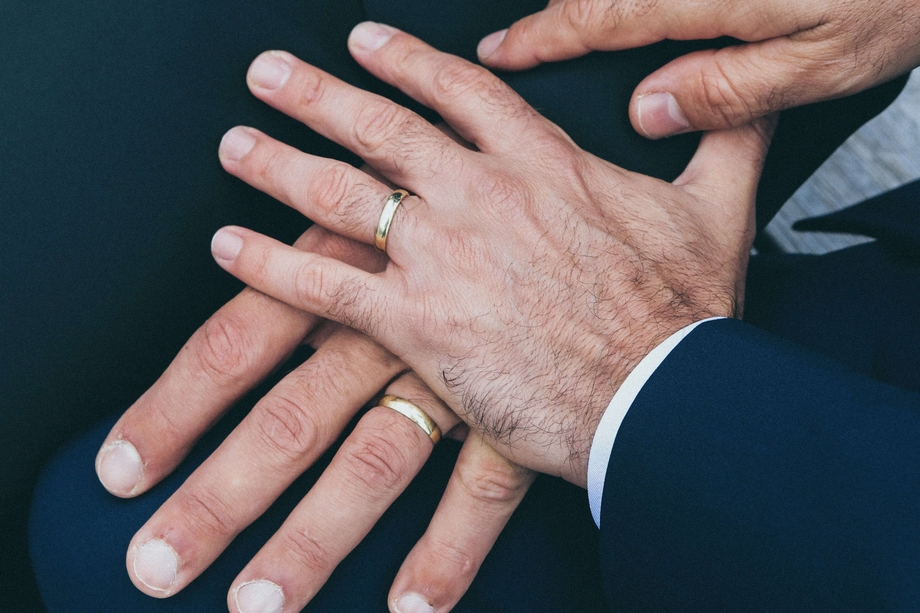
Though the ruling in 303 Creative LLC v. Elenis is deeply upsetting and directly affects my family, hope endures in our household. For every person who struggles with accepting and embracing those different from themselves, there is another who welcomes diversity with open arms. When a disapproving neighbor stole the Pride flag from our front yard, another neighbor surprised us by replacing it. After word spread about the theft, a second neighbor was inspired to sport her own Pride flag for the first time. It read, in rainbow letters, “Be kind.”
Also, every generation is growing more aware of discriminatory behaviors and more inclusive; I see it daily with my children. For instance, my youngest corrected me when I asked for her classmate’s mom’s phone number to arrange a playdate. “He doesn’t have a mom, silly,” she told me. “He has two dads.” I felt embarrassed of myself and proud of her. Now, we use the phrase “their grown-up” when asking about a friend’s parental figure.
Even as an openly gay woman, I have work to do to improve myself in the diversity, equity, and inclusion arena. I am grateful for and plan to embrace any experience that allows me to do this important work. I hope members of our Court will start to do the same.
The Latest from the League
During the 2022 Supreme Court term, the League of Women Voters filed amicus briefs in four cases: Moore v. Harper, Allen v. Milligan, Students for Fair Admissions v. Harvard, and 303 Creative, LLC v. Elenis.
We recap the case and its impact on voting rights, discrimination, and redistricting.
In the past couple of years, we have seen unprecedented numbers of legislative attacks on the rights of lesbian, gay, bisexual, transgender, queer, intersex, asexual, and other sexual and gender minority (LGBTQIA+) individuals, particularly transgender (trans) and non-binary youth. These attacks, accompanied and “justified” by false and pathologizing narratives about LGBTQIA+ people, have devastating consequences for the community’s physical and psychological well-being.
WASHINGTON — Today, League of Women Voters of the United States President Dr. Deborah Turner issued the following statement after the Supreme Court held that a Colorado website designer may discriminate against same-sex couples in her wedding website business based upon her right to free expression under the First Amendment.
Sign Up For Email
Keep up with the League. Receive emails to your inbox!
Donate to support our work
to empower voters and defend democracy.





